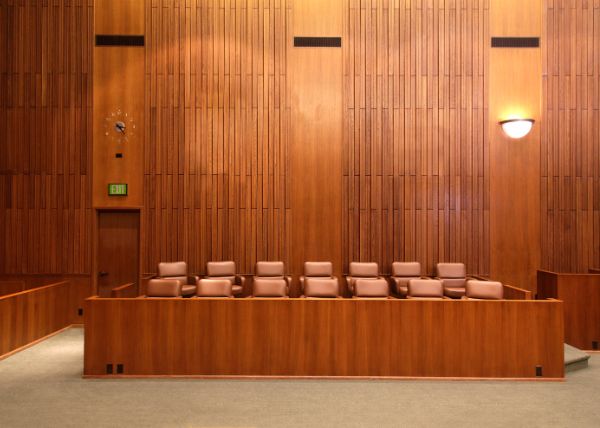
Facing federal wire fraud charges can be a daunting and intimidating experience. If you or a loved one has been accused of wire fraud, it is crucial to seek the guidance and representation of an experienced federal wire fraud defense attorney. At Varghese & Associates, we understand the complexities of federal wire fraud cases and are dedicated to providing aggressive and strategic defense for our clients. We will discuss the importance of hiring a skilled attorney to defend against federal wire fraud charges and the potential consequences of a conviction.
What Is Wire Fraud?
On This Page
- What Is Wire Fraud?
- New York White Collar Criminal Defense Here for You
- Wire Fraud Penalties
- Imprisonment
- Fines
- Restitution
- Probation
- Collateral Consequences
- Wire Fraud Examples
- Strong Criminal Defense in New York
- Federal Wire Fraud Defense Attorney FAQs
- What is the statute of limitations for wire fraud?
- Can I be charged with wire fraud if I didn’t personally initiate the wire transfer?
- What evidence is needed to prove wire fraud?
- What are the potential defenses against wire fraud charges?
- What are the consequences of a wire fraud conviction?
- How can a wire fraud defense attorney help me?
Wire fraud is a serious federal offense that involves the use of electronic communications to execute a scheme to defraud others of money or property. This type of fraud typically involves the use of interstate wires, such as telephone calls, emails, faxes, or electronic transfers, to transmit false or fraudulent information in furtherance of a fraudulent scheme.
Under federal law, wire fraud is prohibited by Title 18, Section 1343 of the United States Code. To establish wire fraud, the government must prove several elements beyond a reasonable doubt:
- Intent to Defraud: The defendant must have knowingly and intentionally devised or participated in a scheme to defraud others of money or property.
- Use of Interstate Wires: The scheme must have involved the use of interstate wires, such as telephone calls, emails, or electronic transfers, to transmit false or fraudulent information.
- Material Misrepresentation: The defendant must have made material misrepresentations or false statements as part of the scheme to deceive victims and obtain money or property.
- Intent to Deceive: The defendant must have acted with the intent to deceive or defraud others for personal gain or to cause financial loss to victims.
Wire fraud can encompass a wide range of fraudulent activities, including investment scams, internet fraud, identity theft, phishing schemes, and more. Due to the interstate nature of electronic communications, wire fraud is often investigated and prosecuted by federal law enforcement agencies, such as the Federal Bureau of Investigation (FBI) and the United States Department of Justice (DOJ).
If you or someone you know is facing allegations of wire fraud, it is essential to seek legal representation from an experienced federal wire fraud defense attorney like those at Varghese & Associates, P.C. Our skilled attorneys have a comprehensive understanding of federal laws and regulations governing wire fraud cases and can provide aggressive defense representation to protect your rights and interests. Contact us today for a confidential consultation to discuss your case and explore your legal options.
New York White Collar Criminal Defense Here for You
At Varghese & Associates, we are committed to providing exceptional legal representation for individuals facing white-collar criminal charges in New York. Vinoo Varghese has a proven track record of success in defending clients against a wide range of white-collar crimes, including wire fraud, securities fraud, embezzlement, and more.
White-collar criminal investigations and prosecutions can be complex and time-consuming, requiring a thorough understanding of federal laws and regulations governing financial crimes. If you are facing white-collar criminal charges in New York, don’t wait to seek legal representation.
Wire Fraud Penalties
Being convicted of wire fraud can have severe consequences, including significant fines, imprisonment, and other collateral consequences. The penalties for wire fraud can vary depending on the specific circumstances of the case, the amount of money or property involved, and the defendant’s criminal history.
Imprisonment
Individuals convicted of wire fraud face potential imprisonment for up to 20 years in federal prison. The length of imprisonment may be determined by factors such as the severity of the offense, the extent of the fraudulent scheme, and whether the defendant has prior criminal convictions.
Fines
Wire fraud convictions may result in substantial fines imposed by the court. The amount of the fine can vary based on the severity of the offense and the financial losses suffered by victims. In some cases, the court may order the defendant to pay restitution to victims to compensate them for their losses.
Restitution
In addition to fines, individuals convicted of wire fraud may be ordered to pay restitution to victims to compensate them for any financial losses suffered as a result of the fraudulent scheme. Restitution may include reimbursement for stolen funds, property damage, or other monetary losses incurred by victims.
Probation
In lieu of or in addition to imprisonment, defendants convicted of wire fraud may be sentenced to probation. Probation typically involves supervision by a probation officer and compliance with specific conditions, such as maintaining employment, attending counseling, or refraining from engaging in criminal activity.
Collateral Consequences
Convictions for wire fraud can also result in various collateral consequences, including damage to one’s reputation, loss of professional licenses or certifications, and difficulty obtaining employment or housing in the future. These collateral consequences can have long-lasting effects on a defendant’s life and livelihood.
Given the serious nature of wire fraud charges and the potential consequences of conviction, it is essential to seek skilled legal representation from an experienced federal wire fraud defense attorney like those at Varghese & Associates, P.C. Our attorneys have a proven track record of success in defending clients against wire fraud allegations and will work tirelessly to protect your rights and achieve the best possible outcome for your case.
Wire Fraud Examples
Wire fraud encompasses a wide range of fraudulent activities that involve the use of electronic communications to carry out schemes to deceive victims and obtain money or property unlawfully. These schemes can take various forms and often target individuals, businesses, or government entities. Here are some common examples of wire fraud:
- Investment Scams: Fraudulent investment schemes involve enticing individuals to invest money in fake or nonexistent ventures, promising high returns on their investment. These schemes often use misleading or false information transmitted through phone calls, emails, or online advertisements to deceive investors and solicit funds.
- Internet Fraud: Internet fraud encompasses a broad range of fraudulent activities conducted online, including phishing scams, identity theft, and online auctions fraud. Cybercriminals may use emails, social media, or fake websites to trick individuals into providing personal or financial information, which is then used for fraudulent purposes.
- Advance Fee Schemes: Advance fee schemes involve convincing victims to pay upfront fees or expenses in exchange for promised benefits, such as lottery winnings, loans, or job opportunities. These schemes typically involve the transfer of funds via wire transfers, electronic payments, or prepaid cards.
- Business Email Compromise (BEC): Business email compromise (BEC) scams target businesses and organizations by impersonating executives or employees and instructing recipients to transfer funds or sensitive information. These scams often involve the use of spoofed email addresses and fraudulent wire transfer instructions to deceive victims.
- Mortgage Fraud: Mortgage fraud schemes involve falsifying information or documents related to mortgage loans to obtain financing under false pretenses. These schemes may include inflating property values, submitting fraudulent income documentation, or misrepresenting the borrower’s financial status.
- Telemarketing Fraud: Telemarketing fraud involves using deceptive sales tactics over the phone to defraud individuals of money or property. Common telemarketing scams include fake charity solicitations, bogus investment opportunities, and fraudulent prize promotions.
- Identity Theft: Identity theft occurs when an individual’s personal or financial information is stolen and used to commit fraud or theft. This information may be obtained through phishing emails, data breaches, or other fraudulent means and can be used to conduct wire fraud schemes involving unauthorized transactions or purchases.
If you or someone you know is facing wire fraud charges, it is essential to seek legal representation from an experienced federal wire fraud defense attorney like those at Varghese & Associates, P.C. Our attorneys have the knowledge, skills, and resources to mount a strong defense against wire fraud allegations and protect your rights throughout the legal process.
Strong Criminal Defense in New York
When facing wire fraud charges in New York, it is crucial to have a strong criminal defense strategy in place to protect your rights and fight for the best possible outcome for your case. The attorneys at Varghese & Associates, P.C. are experienced in defending clients against federal wire fraud allegations in New York and have a proven track record of success in the state and federal courts.
Our attorneys will conduct a thorough investigation into the allegations against you, gathering evidence to challenge the prosecution’s case and identify any weaknesses in their argument. We will work tirelessly to negotiate a favorable plea deal or secure a dismissal of the charges whenever possible. If your case goes to trial, we will vigorously advocate for your innocence and present a strong defense in court.
With our extensive experience in federal wire fraud cases, we understand the complexities of these charges and the potential consequences they carry. We will work tirelessly to protect your rights and ensure that you receive a fair trial. Contact us today for a confidential consultation to discuss your case and learn how we can help you fight back against wire fraud allegations in New York.
Federal Wire Fraud Defense Attorney FAQs
What is the statute of limitations for wire fraud?
The statute of limitations for wire fraud prosecutions is generally five years from the date of the alleged offense. However, certain circumstances may extend or toll the statute of limitations, so it’s essential to consult with an experienced attorney to understand how it applies to your case.
Can I be charged with wire fraud if I didn’t personally initiate the wire transfer?
Yes, individuals can be charged with wire fraud even if they did not personally initiate the wire transfer. If you were involved in a fraudulent scheme, such as providing false information or participating in a conspiracy to defraud others using wire communications, you could be charged with wire fraud.
What evidence is needed to prove wire fraud?
To prove wire fraud, federal prosecutors must establish several elements, including the defendant’s intent to defraud, the use of interstate wires to further the scheme, material misrepresentations or false statements, and the defendant’s knowledge of the fraudulent nature of the scheme. Evidence may include electronic communications, financial records, witness testimony, and other documentation.
What are the potential defenses against wire fraud charges?
Common defenses against wire fraud charges may include lack of intent to defraud, lack of knowledge of the fraudulent scheme, insufficient evidence of wire communications, entrapment, or mistaken identity. An experienced federal wire fraud defense attorney can assess the facts of your case and develop a strategic defense strategy tailored to your circumstances.
What are the consequences of a wire fraud conviction?
Wire fraud convictions can result in severe penalties, including substantial fines, imprisonment for up to 20 years per count, restitution to victims, probation, and collateral consequences such as damage to one’s reputation and difficulty obtaining employment or housing in the future.
How can a wire fraud defense attorney help me?
A skilled wire fraud defense attorney can provide comprehensive legal representation and advocacy to protect your rights and interests throughout the criminal justice process. They can assess the strengths and weaknesses of the government’s case, negotiate with prosecutors to seek favorable outcomes, and defend you at trial if necessary.

